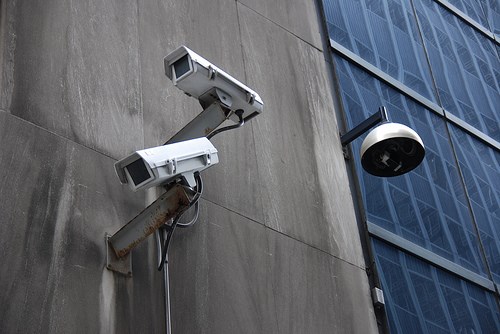The hidden legacy

The security measures installed during the Olympics are rarely uninstalled after the Games, privacy advocate Rodriguez warns. Phote by Flickr User Jonathan Mcintosh used under a Creative Commons License 2.0
16.02.2011
By Anders Christian LarsenIn the wake of recent WikiLeaks disclosures, cables sent from the U.S Embassy to the U.S Government (USG) regarding Brazil hosting the 2014 World Cup and the 2016 Olympics, have surfaced. In the documents WikiLeaks shed light on how the USG has approached their Brazilian equal and attempted to benefit of the future events by a broadened influence on the Brazilian government and a strengthened cooperation in broader security issues.
Electronic Frontier Foundation (EFF), an organisation working to protect fundamental rights in the digital age, recently published a comment debating how Olympic hosts have been subject to elevated means of surveillance even after the games have ended.
In relation to the case of Brazil, EFF reporter Katitza Rodriguez comments on the WikiLeaks findings on the EFF website. Rodriguez underlines the need for transparency and open debate regarding the possible implanting of enhanced surveillance methods:
“The public should carefully monitor security and privacy steps that new the Brazilian government might be considering as the 2014 World Cup soccer and 2016 Olympics approaches. There must be an informed and open debate about privacy and security.”
The cables, however, do not address the very serious privacy, civil liberties and public accountability implications of the widespread use of surveillance technologies. It remains to be seen what types of security and privacy protocols Brazil will implement in the coming years.
What history shows
”History shows that the Olympic Games often result in increased security and public surveillance measures that persist long after the games end – to the detriment of privacy,” Rodriguez writes.
As an example Rodriguez mentions how the Greek law enforcement and intelligent agencies implemented and used over 1000 surveillance cameras during 2004 Olympics in Athens, according to the privacy profile of Greece made public by the organization Privacy International . The cameras were originally intended to monitor high traffic roads, but were also used by the police to survey people in the public space.
According to Rodriguez, the 2008 Olympics in Beijing were also subject to alleged breach of privacy. She refers to an article from InformationWeek and writes that the Chinese authorities installed close to 200.000 cameras and other surveillance equipment in Beijing prior to the games.
Even foreign-owned hostels were submitted to surveillance when the Chinese authorities, according to Rodriguez, installed Internet monitoring equipment with the aim to spy on hotel guests during the Games.
The recent Winter Games in Vancouver in 2010 did also voice apprehensiveness towards the ethics around the heightened security measures in relation to the games. Rodriguez quotes Tamir Israel from the Canadian Internet Policy and Public Interest Clinic, who expresses concern that the recent increase in public security measures could result in lasting changes to the Canadian security landscape:
“It is already clear that the event allowed for new surveillance technologies to gain a foothold in Vancouver that would never otherwise have been accepted” he says.
Hosting a major sporting event as the Olympics advocates for inevitable heightened security and obvious surveillance measures to ensure the safety of athletes, officials and spectators. The problem according to Rodriguez is that the authorities rarely cut back on public surveillance after the games end. These expanded surveillance measures are often made permanent and thereby used at the expense of privacy.
Rodriguez finishes her commentary and sums up: “The public must also be told whether enhanced security measures will be reversed after the games. The Olympics are an opportunity for cultural exchange, not an excuse for trampling civil liberties” .
Read Katitza Rodriguez' comment here





